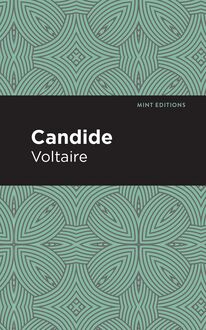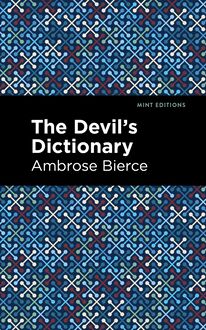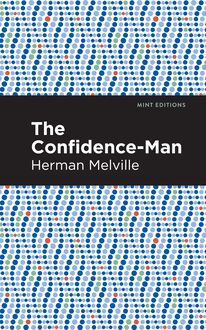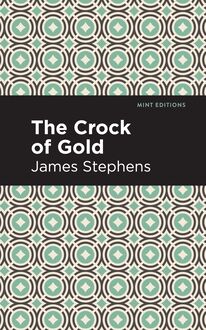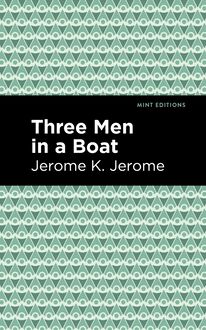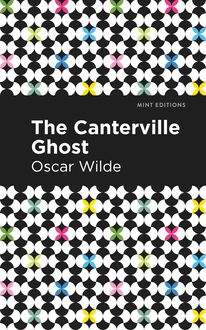-
 Univers
Univers
-
 Ebooks
Ebooks
-
 Livres audio
Livres audio
-
 Presse
Presse
-
 Podcasts
Podcasts
-
 BD
BD
-
 Documents
Documents
-
- Cours
- Révisions
- Ressources pédagogiques
- Sciences de l’éducation
- Manuels scolaires
- Langues
- Travaux de classe
- Annales de BEP
- Etudes supérieures
- Maternelle et primaire
- Fiches de lecture
- Orientation scolaire
- Méthodologie
- Corrigés de devoir
- Annales d’examens et concours
- Annales du bac
- Annales du brevet
- Rapports de stage
La lecture à portée de main
Vous pourrez modifier la taille du texte de cet ouvrage
Découvre YouScribe en t'inscrivant gratuitement
Je m'inscrisDécouvre YouScribe en t'inscrivant gratuitement
Je m'inscrisEn savoir plus
Vous pourrez modifier la taille du texte de cet ouvrage
En savoir plus

Description
The Confidence-Man (1857) is a novel by American writer Herman Melville. After the failure of his novels Moby-Dick (1851) and Pierre: or, The Ambiguities (1852), Melville struggled to find a publisher who would accept his work. When it was published, The Confidence-Man was seen as a flawed, unnecessarily complicated novel, and beyond several collections of poetry, it all but ended Melville’s career as a professional writer. When Melville’s work was reappraised in the 1920s, however, scholars recognized his status as one of nineteenth century America’s finest literary voices. A keen visionary, Melville’s satirical outlook and pessimistic sense of American morality drive the fragmented narrative of The Confidence-Man, his final, most complicated, and perhaps most rewarding novel.
In St. Louis, a mute man dressed in cream colored clothes boards a riverboat bound for New Orleans. On the journey down the Mississippi, a cast of characters at once bizarre and commonplace passes the time playing cards, engaging in conversation, and attempting to gain one another’s trust. A crippled African American beggar faces disbelief when he speaks of his life on the streets. A young and naïve student idolizes wealthy men and hopes to make a fortune by investing in stocks. A man in a gray suit asks his fellow passengers to donate to a suspicious charity. As the boat sails on, it becomes increasingly clear that while confidence is easily purchased, honesty remains the rarest of commodities. Set and published on April Fool’s Day, The Confidence-Man is a satire of American life that explores with unsparing pessimism themes of religion, identity, morality, and the role of money in everyday life.
With a beautifully designed cover and professionally typeset manuscript, this edition of Herman Melville’s The Confidence-Man is a classic of American literature reimagined for modern readers.
Sujets
Informations
| Publié par | Mint Editions |
| Date de parution | 12 janvier 2021 |
| Nombre de lectures | 0 |
| EAN13 | 9781513275031 |
| Langue | English |
| Poids de l'ouvrage | 2 Mo |
Informations légales : prix de location à la page 0,0500€. Cette information est donnée uniquement à titre indicatif conformément à la législation en vigueur.
Extrait
The Confidence-Man
Herman Melville
The Confidence-Man was first published in 1857.
This edition published by Mint Editions 2021.
ISBN 9781513270036 | E-ISBN 9781513275031
Published by Mint Editions®
minteditionbooks .com
Publishing Director: Jennifer Newens
Design & Production: Rachel Lopez Metzger
Typesetting: Westchester Publishing Services
C ONTENTS I. A M UTE G OES A BOARD A B OAT ON THE M ISSISSIPPI II. S HOWING T HAT M ANY M EN H AVE M ANY M INDS III. I N W HICH A V ARIETY OF C HARACTERS A PPEAR IV. R ENEWAL OF O LD A CQUAINTANCE V. T HE M AN W ITH THE W EED M AKES IT AN E VEN Q UESTION W HETHER H E B E A G REAT S AGE OR A G REAT S IMPLETON VI. A T THE O UTSET OF W HICH C ERTAIN P ASSENGERS P ROVE D EAF TO THE C ALL OF C HARITY VII. A G ENTLEMAN W ITH G OLD S LEEVE- B UTTONS VIII. A C HARITABLE L ADY IX. T WO B USINESS M EN T RANSACT A L ITTLE B USINESS X. I N THE C ABIN XI. O NLY A P AGE OR S O XII. S TORY OF THE U NFORTUNATE M AN, FROM W HICH M AY B E G ATHERED W HETHER OR N O H E H AS B EEN J USTLY S O E NTITLED XIII. T HE M AN W ITH THE T RAVELING- C AP E VINCES M UCH H UMANITY, AND IN A W AY W HICH W OULD S EEM TO S HOW H IM TO B E O NE OF T HE M OST L OGICAL OF O PTIMISTS XIV. W ORTH THE C ONSIDERATION OF T HOSE TO W HOM IT M AY P ROVE W ORTH C ONSIDERING XV. A N O LD M ISER, U PON S UITABLE R EPRESENTATIONS, IS P REVAILED U PON TO V ENTURE AN I NVESTMENT XVI. A S ICK M AN, A FTER S OME I MPATIENCE, IS I NDUCED TO B ECOME A P ATIENT XVII. T OWARDS THE E ND OF W HICH THE H ERB- D OCTOR P ROVES H IMSELF A F ORGIVER OF I NJURIES XVIII. I NQUEST I NTO THE T RUE C HARACTER OF THE H ERB- D OCTOR XIX. A S OLDIER OF F ORTUNE XX. R EAPPEARANCE OF O NE W HO M AY B E R EMEMBERED XXI. A H ARD C ASE XXII. I N THE P OLITE S PIRIT OF THE T USCULAN D ISPUTATIONS XXIII. I N W HICH THE P OWERFUL E FFECT OF N ATURAL S CENERY IS E VINCED IN THE C ASE OF THE M ISSOURIAN, W HO, IN V IEW OF THE R EGION R OUND- A BOUT C AIRO, H AS A R ETURN OF H IS C HILLY F IT XXIV. A P HILANTHROPIST U NDERTAKES TO C ONVERT A M ISANTHROPE, B UT D OES N OT G ET B EYOND C ONFUTING H IM XXV. T HE C OSMOPOLITAN M AKES AN A CQUAINTANCE XXVI. C ONTAINING THE M ETAPHYSICS OF I NDIAN- H ATING, A CCORDING TO THE V IEWS OF O NE E VIDENTLY N OT S O P REPOSSESSED AS R OUSSEAU IN F AVOR OF S AVAGES XXVII. S OME A CCOUNT OF A M AN OF Q UESTIONABLE M ORALITY, B UT W HO, N EVERTHELESS, W OULD S EEM E NTITLED TO THE E STEEM OF T HAT E MINENT E NGLISH M ORALIST W HO S AID H E L IKED A G OOD H ATER XXVIII. M OOT P OINTS T OUCHING THE L ATE C OLONEL J OHN M OREDOCK XXIX. T HE B OON C OMPANIONS XXX. O PENING W ITH A P OETICAL E ULOGY OF THE P RESS AND C ONTINUING W ITH T ALK I NSPIRED B Y THE S AME XXXI. A M ETAMORPHOSIS M ORE S URPRISING T HAN ANY IN O VID XXXII. S HOWING T HAT THE A GE OF M USIC AND M AGICIANS IS N OT Y ET O VER XXXIII. W HICH M AY P ASS FOR W HATEVER IT M AY P ROVE TO B E W ORTH XXXIV. I N W HICH THE C OSMOPOLITAN T ELLS THE S TORY OF THE G ENTLEMAN M ADMAN XXXV. I N W HICH THE C OSMOPOLITAN S TRIKINGLY E VINCES THE A RTLESSNESS OF H IS N ATURE XXXVI. I N W HICH THE C OSMOPOLITAN IS A CCOSTED B Y A M YSTIC, W HEREUPON E NSUES P RETTY M UCH S UCH T ALK AS M IGHT B E E XPECTED XXXVII. T HE M YSTICAL M ASTER I NTRODUCES THE P RACTICAL D ISCIPLE XXXVIII. T HE D ISCIPLE U NBENDS, AND C ONSENTS TO A CT A S OCIAL P ART XXXIX. T HE H YPOTHETICAL F RIENDS XL. I N W HICH THE S TORY OF C HINA A STER IS AT S ECOND- H AND T OLD B Y O NE W HO, W HILE N OT D ISAPPROVING THE M ORAL, D ISCLAIMS THE S PIRIT OF THE S TYLE XLI. E NDING W ITH A R UPTURE OF THE H YPOTHESIS XLII. U PON THE H EEL OF THE L AST S CENE THE C OSMOPOLITAN E NTERS THE B ARBER’S S HOP, A B ENEDICTION ON H IS L IPS XLIII. V ERY C HARMING XLIV. I N W HICH THE L AST T HREE W ORDS OF THE L AST C HAPTER ARE M ADE THE T EXT OF D ISCOURSE, W HICH W ILL B E S URE OF R ECEIVING M ORE OR L ESS A TTENTION F ROM T HOSE R EADERS W HO D O N OT S KIP IT XLV. T HE C OSMOPOLITAN I NCREASES IN S ERIOUSNESS
I
A M UTE G OES A BOARD A B OAT ON THE M ISSISSIPPI
At sunrise on a first of April, there appeared, suddenly as Manco Capac at the lake Titicaca, a man in cream-colors, at the water-side in the city of St. Louis.
His cheek was fair, his chin downy, his hair flaxen, his hat a white fur one, with a long fleecy nap. He had neither trunk, valise, carpet-bag, nor parcel. No porter followed him. He was unaccompanied by friends. From the shrugged shoulders, titters, whispers, wonderings of the crowd, it was plain that he was, in the extremest sense of the word, a stranger.
In the same moment with his advent, he stepped aboard the favorite steamer Fid è le, on the point of starting for New Orleans. Stared at, but unsaluted, with the air of one neither courting nor shunning regard, but evenly pursuing the path of duty, lead it through solitudes or cities, he held on his way along the lower deck until he chanced to come to a placard nigh the captain’s office, offering a reward for the capture of a mysterious impostor, supposed to have recently arrived from the East; quite an original genius in his vocation, as would appear, though wherein his originality consisted was not clearly given; but what purported to be a careful description of his person followed.
As if it had been a theatre-bill, crowds were gathered about the announcement, and among them certain chevaliers, whose eyes, it was plain, were on the capitals, or, at least, earnestly seeking sight of them from behind intervening coats; but as for their fingers, they were enveloped in some myth; though, during a chance interval, one of these chevaliers somewhat showed his hand in purchasing from another chevalier, ex-officio a peddler of money-belts, one of his popular safe-guards, while another peddler, who was still another versatile chevalier, hawked, in the thick of the throng, the lives of Measan, the bandit of Ohio, Murrel, the pirate of the Mississippi, and the brothers Harpe, the Thugs of the Green River country, in Kentucky—creatures, with others of the sort, one and all exterminated at the time, and for the most part, like the hunted generations of wolves in the same regions, leaving comparatively few successors; which would seem cause for unalloyed gratulation, and is such to all except those who think that in new countries, where the wolves are killed off, the foxes increase.
Pausing at this spot, the stranger so far succeeded in threading his way, as at last to plant himself just beside the placard, when, producing a small slate and tracing some words upon if, he held it up before him on a level with the placard, so that they who read the one might read the other. The words were these:—
“Charity thinketh no evil.”
As, in gaining his place, some little perseverance, not to say persistence, of a mildly inoffensive sort, had been unavoidable, it was not with the best relish that the crowd regarded his apparent intrusion; and upon a more attentive survey, perceiving no badge of authority about him, but rather something quite the contrary—he being of an aspect so singularly innocent; an aspect too, which they took to be somehow inappropriate to the time and place, and inclining to the notion that his writing was of much the same sort: in short, taking him for some strange kind of simpleton, harmless enough, would he keep to himself, but not wholly unobnoxious as an intruder—they made no scruple to jostle him aside; while one, less kind than the rest, or more of a wag, by an unobserved stroke, dexterously flattened down his fleecy hat upon his head. Without readjusting it, the stranger quietly turned, and writing anew upon the slate, again held it up:—
“Charity suffereth long, and is kind.”
Illy pleased with his pertinacity, as they thought it, the crowd a second time thrust him aside, and not without epithets and some buffets, all of which were unresented. But, as if at last despairing of so difficult an adventure, wherein one, apparently a non-resistant, sought to impose his presence upon fighting characters, the stranger now moved slowly away, yet not before altering his writing to this:—
“Charity endureth all things.”
Shield-like bearing his slate before him, amid stares and jeers he moved slowly up and down, at his turning points again changing his inscription to—
“Charity believeth all things.”
and then—
“Charity never faileth.”
The word charity, as originally traced, remained throughout uneffaced, not unlike the left-hand numeral of a printed date, otherwise left for convenience in blank.
To some observers, the singularity, if not lunacy, of the stranger was heightened by his muteness, and, perhaps also, by the contrast to his proceedings afforded in the actions—quite in the wonted and sensible order of things—of the barber of the boat, whose quarters, under a smoking-saloon, and over against a bar-room, was next door but two to the captain’s office. As if the long, wide, covered deck, hereabouts built up on both sides with shop-like windowed spaces, were some Constantinople arcade or bazaar, where more than one trade is plied, this river barber, aproned and slippered, but rather crusty-looking for the moment, it may be from being newly out of bed, was throwing open his premises for the day, and suitably arranging the exterior. With business-like dispatch, having rattled down his shutters, and at a palm-tree angle set out in the iron fixture his little ornamental pole, and this without overmuch tenderness for the elbows and toes of the crowd, he concluded his operations by bidding people stand still more aside, when, jumping on a stool, he hung over his door, on the customary nail, a gaudy sort of illuminated pasteboard sign, skillfully executed by himself, gilt with the likeness of a razor elbowed in readiness to shave, and also, for the public benefit, with two words not unfrequently seen ashore gracing other shops besides barbers’:—
“N O T RUST .”
An inscription which, though in a sense no
-
 Univers
Univers
-
 Ebooks
Ebooks
-
 Livres audio
Livres audio
-
 Presse
Presse
-
 Podcasts
Podcasts
-
 BD
BD
-
 Documents
Documents
-
Jeunesse
-
Littérature
-
Ressources professionnelles
-
Santé et bien-être
-
Savoirs
-
Education
-
Loisirs et hobbies
-
Art, musique et cinéma
-
Actualité et débat de société
-
Jeunesse
-
Littérature
-
Ressources professionnelles
-
Santé et bien-être
-
Savoirs
-
Education
-
Loisirs et hobbies
-
Art, musique et cinéma
-
Actualité et débat de société
-
Actualités
-
Lifestyle
-
Presse jeunesse
-
Presse professionnelle
-
Pratique
-
Presse sportive
-
Presse internationale
-
Culture & Médias
-
Action et Aventures
-
Science-fiction et Fantasy
-
Société
-
Jeunesse
-
Littérature
-
Ressources professionnelles
-
Santé et bien-être
-
Savoirs
-
Education
-
Loisirs et hobbies
-
Art, musique et cinéma
-
Actualité et débat de société
- Cours
- Révisions
- Ressources pédagogiques
- Sciences de l’éducation
- Manuels scolaires
- Langues
- Travaux de classe
- Annales de BEP
- Etudes supérieures
- Maternelle et primaire
- Fiches de lecture
- Orientation scolaire
- Méthodologie
- Corrigés de devoir
- Annales d’examens et concours
- Annales du bac
- Annales du brevet
- Rapports de stage
